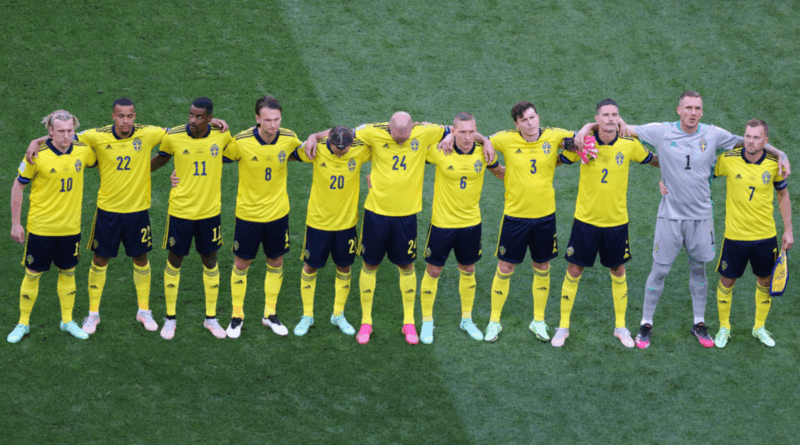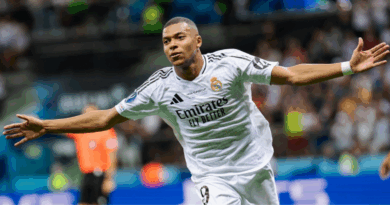Graham Potter returns to Sweden to revive fading World Cup dream
When Graham Potter stepped back onto Swedish soil, it wasn’t just another coaching appointment — it felt like unfinished business. The Englishman who once turned tiny Östersunds into a European fairytale has returned to a country where his reputation was first forged. Now, he faces a different kind of test: rescuing Sweden’s national team from a crisis of confidence and missed opportunities.
Only a year ago, optimism had returned under Jon Dahl Tomasson. The team played on the front foot, strikers Alexander Isak and Viktor Gyökeres were scoring freely, and fans dared to believe the dark years were ending. But by the end of 2024, that optimism had evaporated. The Swedish Football Association (SvFF) dismissed Tomasson midway through World Cup qualifying — the first manager in national team history to lose his job before a campaign concluded.
A team searching for direction
Sweden’s failure to reach Euro 2024 had already prompted deep reflection. Janne Andersson’s long tenure ended, and former international Kim Källström was appointed sporting director to chart a new path.
“We need to analyse where we are, why we are there, and where we want to go,” Källström told Aftonbladet in December 2023. His remarks captured a federation eager for renewal — and his choice of successor reflected that.
Read also: The 17 Most Decorated Footballers of All Time — Ranked by Trophies Won
Tomasson, a former Denmark striker and Malmö coach, arrived from Blackburn Rovers with a reputation for modern, high-tempo football. Initially, results were encouraging. In the Nations League, Sweden’s switch to a 3-4-1-2 system freed Isak and Gyökeres, who scored 12 goals between them in four games.
“My goal is to reverse bad results by building a new style and a new team,” Tomasson told Danish outlet Bold.dk.
But the optimism came with caveats. Analysts noted that the wins came against modest opposition — Slovakia, Estonia, and Azerbaijan — and doubted whether Sweden could sustain such openness against stronger nations.
When the revival ran out of breath
Those doubts proved justified. In their first 2026 World Cup qualifier, Sweden twice led in Slovenia before conceding late after a Robin Olsen error. Three days later, a flat 2–0 defeat in Kosovo deepened the crisis.
Read also: Chaos at Kings League after insult to Lamine Yamal’s mother
Expressen called the display “a betrayal,” while former winger Freddie Ljungberg described it as “appalling.” Göteborgs-Posten wrote that “the uphill struggle is now impossible.”
When Switzerland visited Solna in October, the pressure was unbearable. Sweden failed to register a shot on target in a 2–0 defeat, and furious supporters unfurled a banner reading “JDT Out, Danish bast*rd.” Defender Emil Holm condemned the message, telling Aftonbladet, “There should be no such thing.”
Tomasson tried to stay composed, admitting the result was “a slap in the face” but insisting Sweden could still recover. A week later, another loss to Kosovo ended any remaining hope. Former defender Jonas Olsson said on Viaplay the team looked “completely broken.” Days later, the SvFF announced Tomasson’s dismissal.
Potter’s second act in Sweden
Appointing Graham Potter surprised many in England, where his brief spells at Chelsea and West Ham ended in frustration. But in Sweden, the move felt symbolic. This was the country where he built Östersunds from the fourth tier to European competition — famously beating Arsenal at the Emirates in 2018.
Read also: 15 players most likely to win the Super Ballon d'Or
“He has won the lottery with the Sweden job,” former Manchester United striker Dwight Yorke told Snabbare. “It all happened quickly, but sometimes you just need that break.”
Potter’s long-time assistant, Björn Hamberg, also returns — another link to his Swedish roots. Olsson told Sky Sports that the hire “was an easy appointment to sell,” adding that fans “see him as one of their own.”
Finding belief again
Potter’s first press conference as Sweden coach showed his trademark humility. Speaking in Swedish, he said, “It’s a big honour for me. I understand Swedish football well, and it’s important to at least try to speak the language.”
His challenge is considerable. Sweden sit fourth in UEFA Group B, with only a playoff route left for a possible World Cup berth. Gyökeres is injured, Isak is still regaining match fitness, and the team remains short on confidence.
Read also: The hidden setback that stalled Sancho’s United career
The upcoming fixtures against Switzerland and Slovenia will serve less as must-wins than as a chance for Potter to test ideas before the decisive playoff next spring.
For Swedish fans, hope has become a fragile habit. But Potter’s record in Östersund suggests he thrives on long odds and quiet rebuilds. As Tomasson admitted shortly before his exit, “We have forgotten how to score goals, and I don’t know why.”
Now, it’s Potter’s turn to rediscover that answer — and perhaps restore not just Sweden’s pride, but his own standing as one of football’s most thoughtful coaches.
Sources: BBC, Reuters, Sky Sports, Expressen, Aftonbladet, Bold.dk, Viaplay, Snabbare
Read also: Ronaldo's red card sparks clash with Ireland boss




